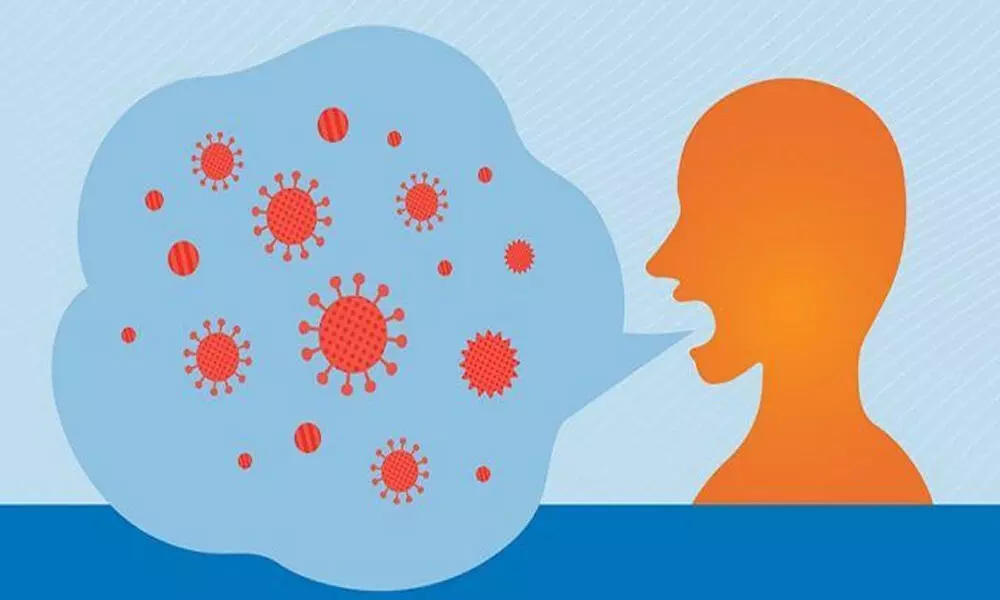Airborne Covid: Masks can't protect people staying indoors
Concept of airborne transmission compelling people in India to close their windows rather than open them
image for illustrative purpose

You know something is wrong with the public health messaging in the US when a tow truck driver is giving out better information on Covid-19 transmission than the WHO or CDC. His words of wisdom to me, when he came to tow my car back to the dealer earlier this spring, was that if you're indoors with people and one of them is infected, you can still get infected even if everyone is wearing a mask. And if you're outdoors and someone is infected, you're probably not going to get it.
He was speaking from direct experience, having done essential work through the worst of the pandemic. He said he'd seen co-workers get sick and that his boss had died.
And he was right. The SARS-CoV2 virus can travel on very small particles that disperse quickly outdoors, but can build up inside. Indoors, these particles can affect people who stay more than six feet away. And the hodgepodge of masks Americans have adopted may provide some protection, but they don't render an unsafe situation safe.
Though scientists have been discussing airborne transmission for months, it was only this week that the WHO and CDC made this official. With the vaccine rollout still in its early days globally, those officials should follow up this belated admission with guidance unvaccinated people can use to minimize their risk.
Clarifying the word "airborne" would be a good place to start. The scientific meaning isn't the same as its common meaning, and so people may wrongly assume that outdoor air is dangerous. As a recent article in the New York Times reported, news about the concept of airborne transmission was compelling people in India to close their windows rather than open them.
Indeed, reports on airborne transmission can be unnecessarily panic-inducing, implying that risk is nearly unavoidable, and that there's no safe distance from our fellow humans.
It's true that the virus can build up in indoor environments in a way that can still pose a risk even if people wear masks and stay more than six feet apart. But that risk can be mitigated by opening windows and wearing N95 masks, and by keeping exposure short. A quick trip to the supermarket is going to be safer than a long meal in a restaurant or an exercise class. And because the virus is primarily traveling on smaller particles, the risk is tiny outdoors, even if someone passes within six feet.
Indoor restaurants, therefore, are not rendered safe by rules that dictate people put on a mask when they're not eating, or by most of the plexiglass dividers between tables. Opening windows does help, as would offering a warning that unvaccinated people are taking risks by dining inside.
This has long been known - though officials were slow to admit it. Last May, I interviewed Muge Cevik, an infectious disease specialist at the University of St. Andrews in the UK She had been collecting all the data she could find from contact tracing around the world to see how the disease was actually being transmitted. There were reports that so-called superspreading events had happened primarily in offices, at business conferences, in retail stores where people lingered, and indoor restaurants. Beyond superspreading, there was lots of transmission in homes.
She found that the amount of time people spent in a closed environment matters. And the greater the number of people in an enclosed space, the higher the odds that one of them is contagious.
That's why in Japan, people have long been warned to avoid the three Cs - crowds, closed spaces and close contact. Useful public health messages don't need to be complicated.
It's not too late to do a better job on public health messaging and prioritizing. In countries where people are returning to offices and other workspaces, ventilation should be a higher priority than sanitizing surfaces. In India, where the pandemic is raging, officials should stop wasting resources on drones spraying disinfectant on parks.
Here in America, we've worried too much about 15-minute grocery store trips and have taken false comfort in a six-foot distance. We have spent far too much mental energy enraged at each other for going unmasked to the beach, or taking masks off in a parking lot - assigning other people's behaviour an outsized role in our own risk. A better understanding of what airborne transmission really means can help us better manage our own risks and preserve our ability feel good about our fellow human beings. And, of course, should motivate more of us to get the vaccine. (Bloomberg)

